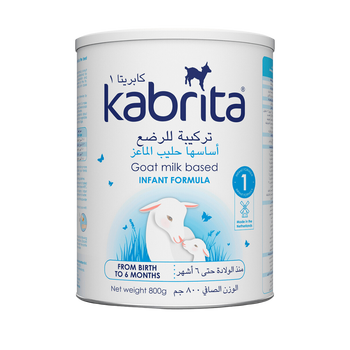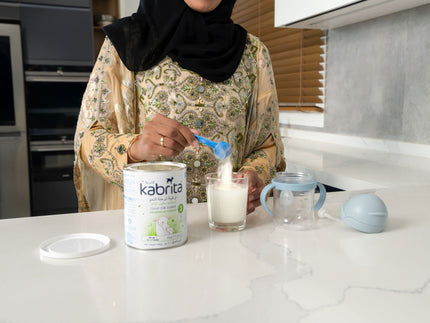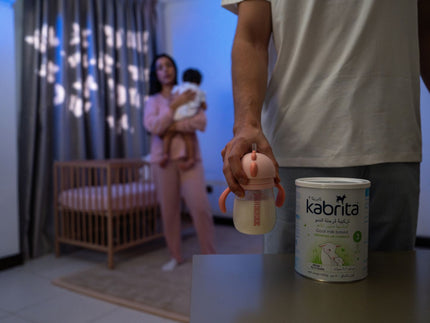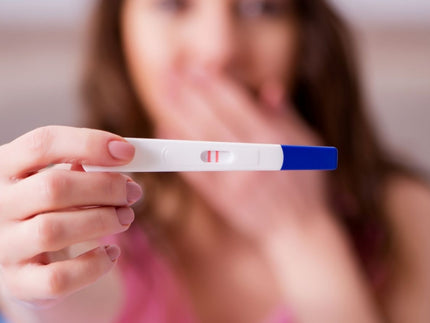How to Cope With Separation Anxiety in Babies
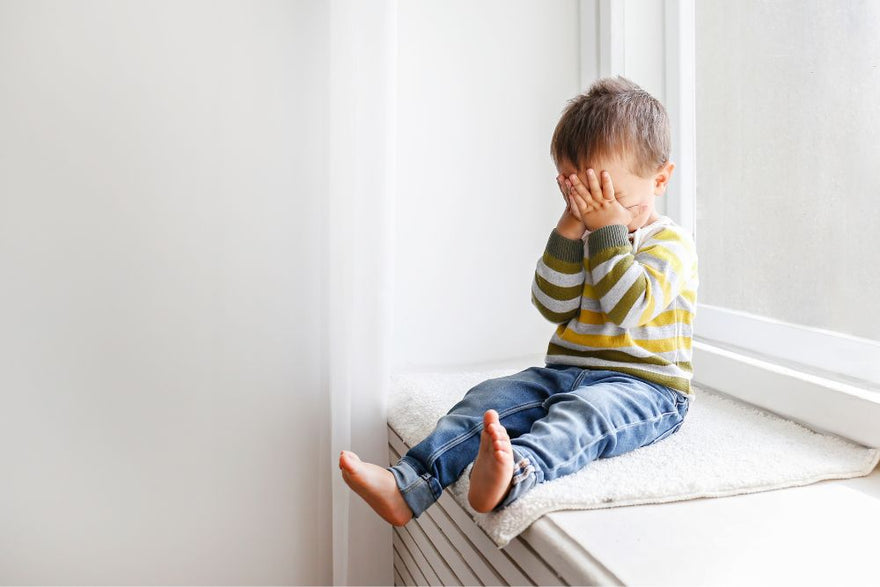
Welcoming a new baby into the world is a momentous occasion filled with joy, wonder, and sometimes, a touch of anxiety. It's not uncommon for infants to experience moments of distress or unease, and understanding the potential causes can empower parents to provide the best care and support for their little ones. In this blog, we'll explore what separation anxiety is, its underlying causes, and practical tips for parents to help their children navigate through it.
What is Separation Anxiety?
Separation anxiety is a natural and expected part of a child's development, typically occurring during their early years where they become distressed when separated from their parents or primary caregiver. In most cases, this anxiety starts around six months of age and reaches its peak in children aged 14-18 months. It usually goes away gradually throughout early childhood.
What are the Causes of Separation Anxiety?
Around 6 to 12 months of age, as babies start comprehending object permanence, they begin to realize that people and objects continue to exist even when they're out of sight. This realization marks the beginning of separation anxiety. However, due to their limited sense of time, they can't predict when their parents or caregiver will return. This uncertainty leads to feelings of anxiety and restlessness.
As they gain independence in toddlerhood, separation anxiety may return as a result of the growing distance from their parents. Although this period often fades spontaneously as they grow, some triggers may intensify it, like:
- Welcoming a new baby: A new sibling can be a life-changing event for a child. It causes a significant shift in their family dynamic, which may result in emotions of uneasiness and a need for further reassurance from their parents.
- Adapting to a New Caregiver: Forming a bond with a new caregiver takes time and effort. A baby may experience anxiety as a result of this person's unfamiliarity, especially if they were previously accustomed to a different caregiver.
- Sensing Parent's Stress: Babies are acutely aware of their parents' emotional states. If you're stressed out, a perceptive child may pick up on these indications, potentially leading to feelings of anxiety or unease.
- Experiencing Fatigue, Hunger, or Illness: When a child is physically uncomfortable or unwell, they may be more prone to experiencing separation anxiety. Discomfort from factors like fatigue, hunger, or illness can make them seek the comfort and security of their parents or caregiver.
What are the Signs of Separation Anxiety?
The fact that a baby is fussing and crying when you leave the room means they have a strong bond and attachment to you. This attachment is a positive indicator of your baby's growth and a clear sign of their advancing cognitive and social-emotional development. Here are some signs to look out for:
- Clinginess: Sometimes, you might notice your little one fusses and cries the instant you hand them to someone new, becoming extra attached to you throughout the day. This is completely normal and shows that they feel safe with you.
- Protest Crying: When it's time to say goodbye or leave them in someone else's care, your child might express their feelings through tears, loud cries, or even tantrums. It's their way of letting you know they'd rather stay with you.
- Difficulty with Transitions: Moving into a new home can be a bit tricky for a baby dealing with separation anxiety as it can disrupt a baby’s sense of routine and familiarity. They might need a little extra patience and reassurance during these moments.
- Nighttime Waking: Separation anxiety can sometimes disrupt your child's sleep routine. You might notice them waking up more often during the night and have trouble sleeping unless you’re nearby providing comfort and reassurance.
Tips and Strategies on How to Deal with Separation Anxiety
As with many stages of infant development, patience is key to handling this at the moment. You should never ignore a baby with separation anxiety; instead, try these strategies to ease both your stress and the baby’s.
- Establish a Routine: Predictability is a cornerstone of security for little ones. Crafting a consistent routine for leaving and returning provides a reassuring sense of structure. Knowing what to expect can help ease any anxiety they may feel.
- Gradual Separation for Growing Comfort: Begin with brief periods of separation, gradually extending the duration as your child becomes more at ease. This step-by-step approach allows them to build trust in your eventual return, fostering a sense of confidence.
- Warm Reassurance, Both Verbal and Physical: Reassurance is a powerful tool. Foster secure attachment and comfort them when they are afraid or upset. Combine verbal comfort with tender gestures like hugs and soothing touches to provide tangible reassurance by spending time holding and cuddling your baby each day.
- Introduce Cherished Transitional Objects: Transitional objects, like a beloved stuffed animal or a soft blanket, can be a wellspring of comfort. These familiar items carry a sense of security and can become a reliable source of solace when separated from you.
- Play games to encourage separation: Peek-a-boo is a useful activity for teaching babies that even when someone is out of sight, they still exist and will return. Similarly, you can cover and uncover toys with a blanket to help your baby grasp the concept of object permanence.
- Empower Independence with Choices: Encourage your baby to make simple choices and explore activities on their own, allow them to crawl or move away from you while maintaining supervision from nearby. This not only nurtures a sense of self-assuredness but also lays the foundation for their growing independence and reinforces the understanding that it is safe to explore their surroundings.
While separation anxiety can be a challenging phase for both parents and children, it’s important to remember that it's a normal part of their development. With patience, understanding, and consistent support, parents can help their babies navigate through this phase, fostering healthy emotional growth and independence.
Remember that this is a normal stage your baby goes through and will eventually grow out of it. Being consistent and sticking to a routine can help them understand that when a parent leaves, they will come back. If separation anxiety seems severe or prolonged, you should discuss their concerns with a doctor or a pediatrician.



